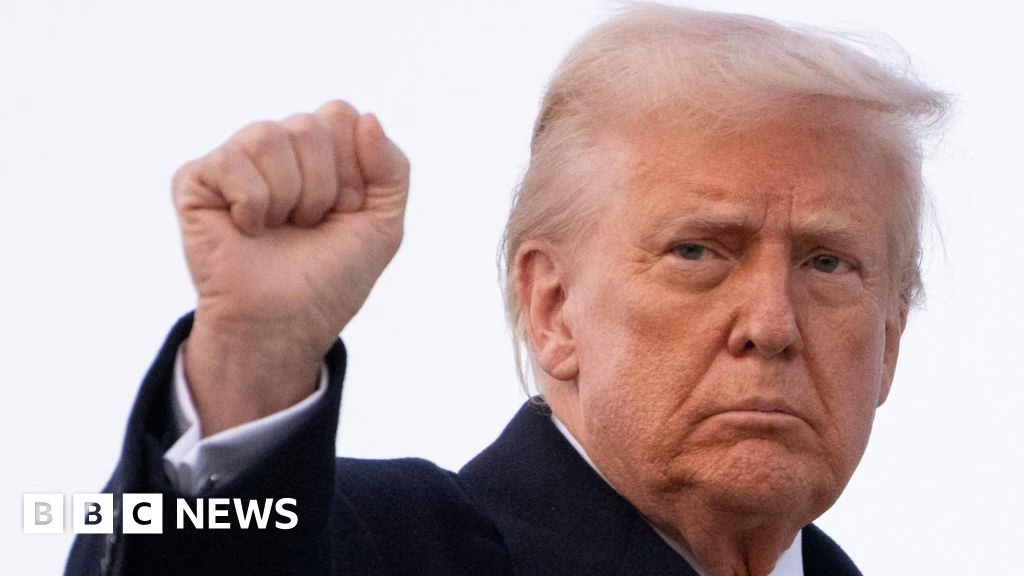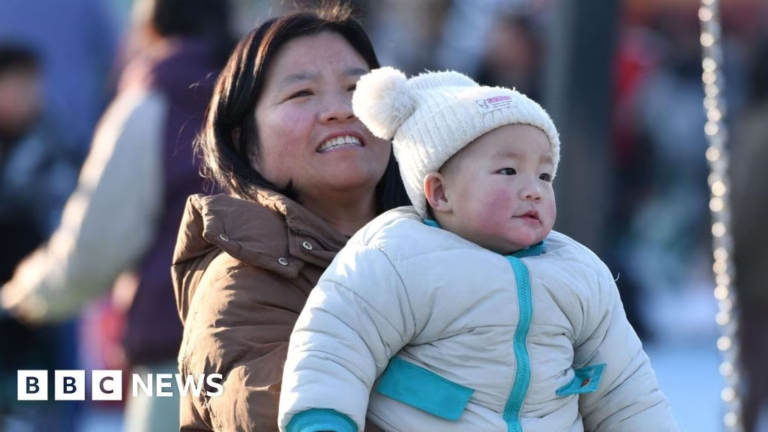US President Donald Trump has avoided saying whether the economy will see a recession or prices rising due to his administration’s fluctuating tariffs against some major trading partners.
When asked if there would be a recession this year, Trump mentioned a “period of transition” happening.
However, Commerce Secretary Wilbur Ross asserted there would be no economic contraction, although some goods may become more expensive.
This comes after the US financial markets experienced a rocky week over uncertainty about the administration’s changing trade policies.
New reciprocal tariffs from China, targeting certain US agricultural products, will go into effect on Monday.
In an interview with Fox News, Trump responded to a question about a potential recession, stating, “I despise making predictions like that. There’s a transition period because we’re doing something very big. We’re bringing wealth back to America. That’s substantial.”
“It may take some time, but I think it’s going to be great for us,” he added.
Last week, the US imposed high new tariffs on imports from Mexico and Canada, only to exempt many of those products a couple of days later.
Trump also raised a blanket tariff on China to 20%. In retaliation, China has levied reciprocal taxes on some US agricultural products.
He has accused China, Mexico, and Canada of failing to curb the flow of illicit drugs and immigrants into the US. These countries have dismissed the accusations.
US stocks have fallen since Trump initiated a trade conflict with major US trading partners.
Investors are apprehensive that tariffs will raise prices and erode growth in the world’s largest economy.
Appearing on NBC, Ross stated, “Some foreign goods may become more expensive, but American products will become cheaper.”
Asked about the possibility of a recession, Ross firmly stated, “Absolutely not… There won’t be a recession in America.”
Frank Lavin, a former US Commerce Department official, told the BBC he thinks the trade war is unlikely to spiral out of control.
Tariffs will eventually “calm down a bit” but still represent an “extra burden on the US economy,” he said.









